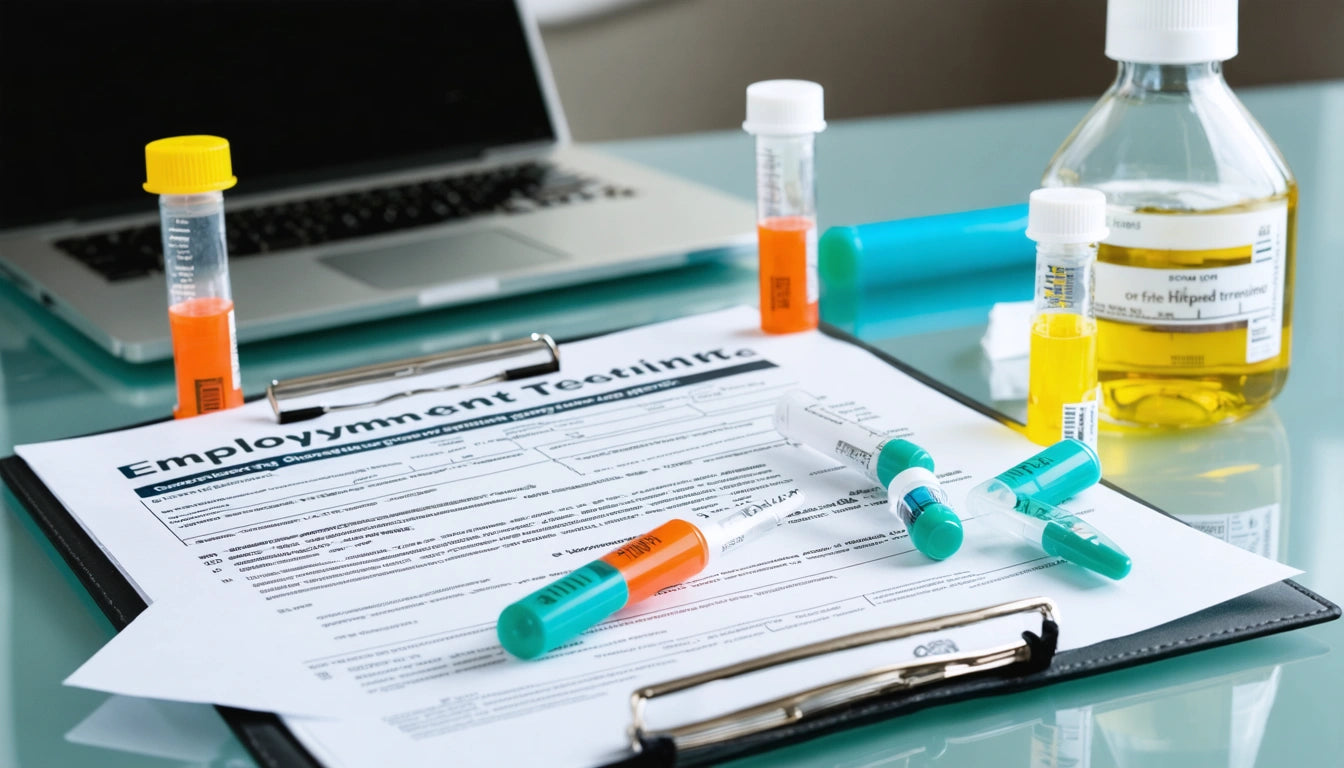Table of Contents
- Common Employment Drug Tests: Methods and Detection
- Industries and Positions Requiring Drug Testing
- Government and Public Sector Testing Policies
- Retail and Service Industry Testing Practices
- Legal Considerations and Testing Frequency
- Preparing for an Employment Drug Test
- Future Employment Testing Trends and Changing Policies
Understanding Employment Drug Testing: What You Need to Know
Employment drug testing has become a standard practice for many organizations across various industries. Whether you're applying for a new position, wondering about your current employer's policies, or simply curious about the process, understanding how drug testing works in the employment context is valuable information. This guide explores what employment drug tests typically screen for, which industries commonly require testing, and how testing policies vary across different sectors.
Common Employment Drug Tests: Methods and Detection
When it comes to employment screening, several testing methods are used, each with different detection windows and sensitivity levels.
Urine Testing
Urine testing is the most common drug test for employment, accounting for approximately 90% of workplace drug screens. This non-invasive method typically screens for 5-10 substances, including marijuana, cocaine, amphetamines, opiates, and PCP. Detection windows vary by substance, ranging from 1-3 days for some drugs to up to 30 days for heavy marijuana users.
Hair Testing
Hair follicle testing provides a longer detection window, typically 90 days, making it useful for identifying patterns of use rather than recent consumption. While less common than urine testing due to higher costs, some industries with strict safety protocols prefer this method for its extended detection capabilities.
Saliva Testing
Oral fluid testing is gaining popularity for its convenience and ability to detect very recent use. This method typically has a shorter detection window (24-48 hours) and is often used for reasonable suspicion or post-accident testing scenarios.
Blood Testing
Blood testing is the most accurate but least common employment screening method due to its invasive nature and higher cost. Hospitals and healthcare facilities sometimes use blood testing for employment, particularly for positions with access to controlled substances. This method provides a precise measurement of substances present at the time of collection.
Industries and Positions Requiring Drug Testing
Drug testing requirements vary significantly across industries, with safety-sensitive sectors implementing more rigorous screening protocols.
Healthcare and Medical Facilities
Hospitals typically use urine drug tests for employment, though some positions may require more comprehensive panels. Healthcare professionals undergo drug testing due to their access to medications and responsibility for patient safety. Most medical facilities test for both illicit substances and commonly abused prescription medications.
Transportation and Heavy Machinery
Department of Transportation (DOT) regulated positions require mandatory drug testing, including pre-employment, random, post-accident, and reasonable suspicion testing. These tests typically use urine samples and follow federally standardized procedures.
Education and Childcare
Many educational institutions and childcare facilities require pre-employment drug screening, particularly for positions with direct supervision of minors. Testing policies vary by state and institution type.
Government and Public Sector Testing Policies
Government employment often comes with specific drug testing requirements, though policies vary by level and department.
Federal Employment Testing
Do federal jobs drug test? Yes, most federal positions require pre-employment drug testing, with security-sensitive roles subject to random testing throughout employment. Even high-level positions are not exempt, though the President of the United States is not legally required to undergo drug testing as they are elected rather than hired.
State and Local Government
Do state government jobs drug test? Generally yes, though policies vary by state. Similarly, do county jobs and city jobs drug test? Most do, particularly for public safety positions, though testing requirements for administrative roles may be less stringent. Some states have moved to limit testing for marijuana in legal states.
Military and Law Enforcement
Military branches and law enforcement agencies maintain some of the strictest drug testing protocols, with comprehensive screening procedures during recruitment and random testing throughout service.
Retail and Service Industry Testing Practices
Retail and service industries have varying approaches to drug testing, often depending on company size and position responsibilities.
Fast Food and Restaurant Chains
Does McDonald's do drug tests? While McDonald's has the right to drug test employees, many locations do not regularly test entry-level workers unless required by state law or following workplace incidents. Policies often vary by franchise owner rather than being company-wide.
Corporate and Office Environments
Do companies still drug test? Many do, though testing has declined in some sectors. Companies like State Farm may drug test depending on the position and location, with insurance claims adjusters and agents who drive company vehicles more likely to be tested than administrative staff.
Job Training Programs
Does Job Corps drug test? Yes, Job Corps typically requires drug testing during the application process and may conduct random testing during enrollment. As a federally funded program, it maintains drug-free workplace policies across all centers nationwide.
Legal Considerations and Testing Frequency
The legal landscape around employment drug testing continues to evolve, particularly regarding marijuana testing in states where it's legal for medical or recreational use.
State-Specific Regulations
Some states have enacted protections for off-duty marijuana use, while others maintain employer rights to test regardless of legalization status. Employer testing for marijuana in legal states faces increasing restrictions, with some jurisdictions prohibiting pre-employment marijuana screening for non-safety-sensitive positions.
Union Protections
Do unions drug test in California? Union members typically have additional protections regarding drug testing, with specific procedures outlined in collective bargaining agreements. In California, unions have successfully negotiated limitations on random testing for positions not directly impacting public safety.
Testing Frequency
How often can an employer drug test you? This varies by state law and company policy. While pre-employment testing is most common, some positions require random, reasonable suspicion, post-accident, or return-to-duty testing. For specialized equipment operations, regular testing may be necessary, as seen with industrial processing equipment operators in manufacturing settings.
Preparing for an Employment Drug Test
Understanding what to expect can help reduce anxiety around employment drug testing.
Common Testing Procedures
Most employment drug tests follow standardized collection procedures to ensure sample integrity. Understanding these procedures can help you know what to expect. Typically, you'll receive instructions about medication disclosure and identification requirements before your appointment.
Disclosure of Medications
Be prepared to disclose prescription medications that might affect test results. Providing documentation from your healthcare provider can help prevent false positives from legitimate prescriptions.
Understanding Your Rights
Familiarize yourself with state-specific protections regarding employment drug testing. Some states require written notice, limit random testing, or protect certain medical marijuana users from employment discrimination.
Future Employment Testing Trends and Changing Policies
The landscape of employment drug testing continues to evolve, with several notable trends emerging:
- Reduction in marijuana testing as more states legalize recreational use
- Increased focus on impairment testing rather than substance detection
- Greater emphasis on prescription medication abuse in comprehensive panels
- More nuanced policies distinguishing between safety-sensitive and other positions
- Adoption of oral fluid testing for its ability to detect recent use rather than past use
As workplace drug policies continue to adapt to changing legal landscapes and social attitudes, both employers and job seekers should stay informed about evolving standards and requirements in their industries and locations.











Leave a comment
All comments are moderated before being published.
This site is protected by hCaptcha and the hCaptcha Privacy Policy and Terms of Service apply.